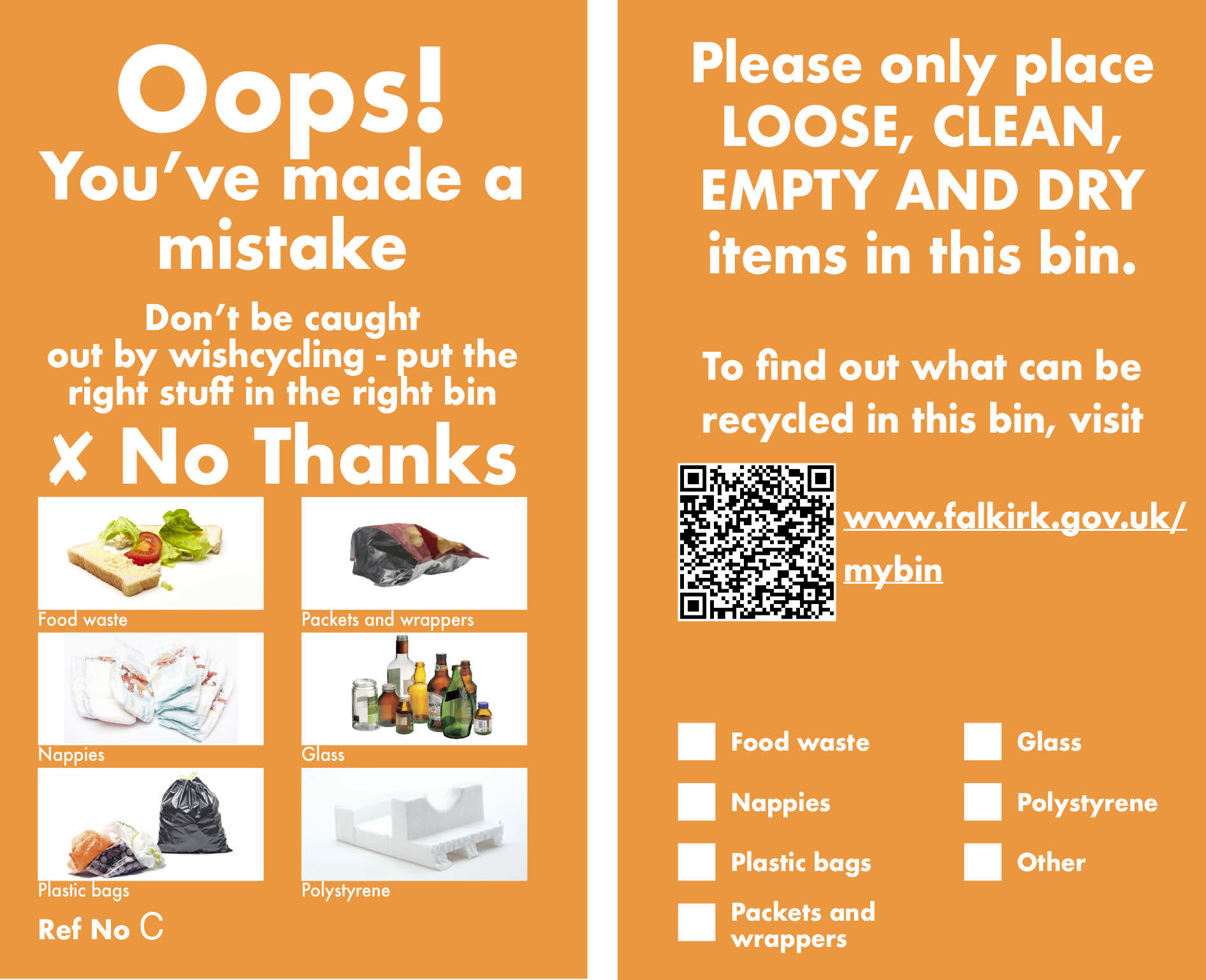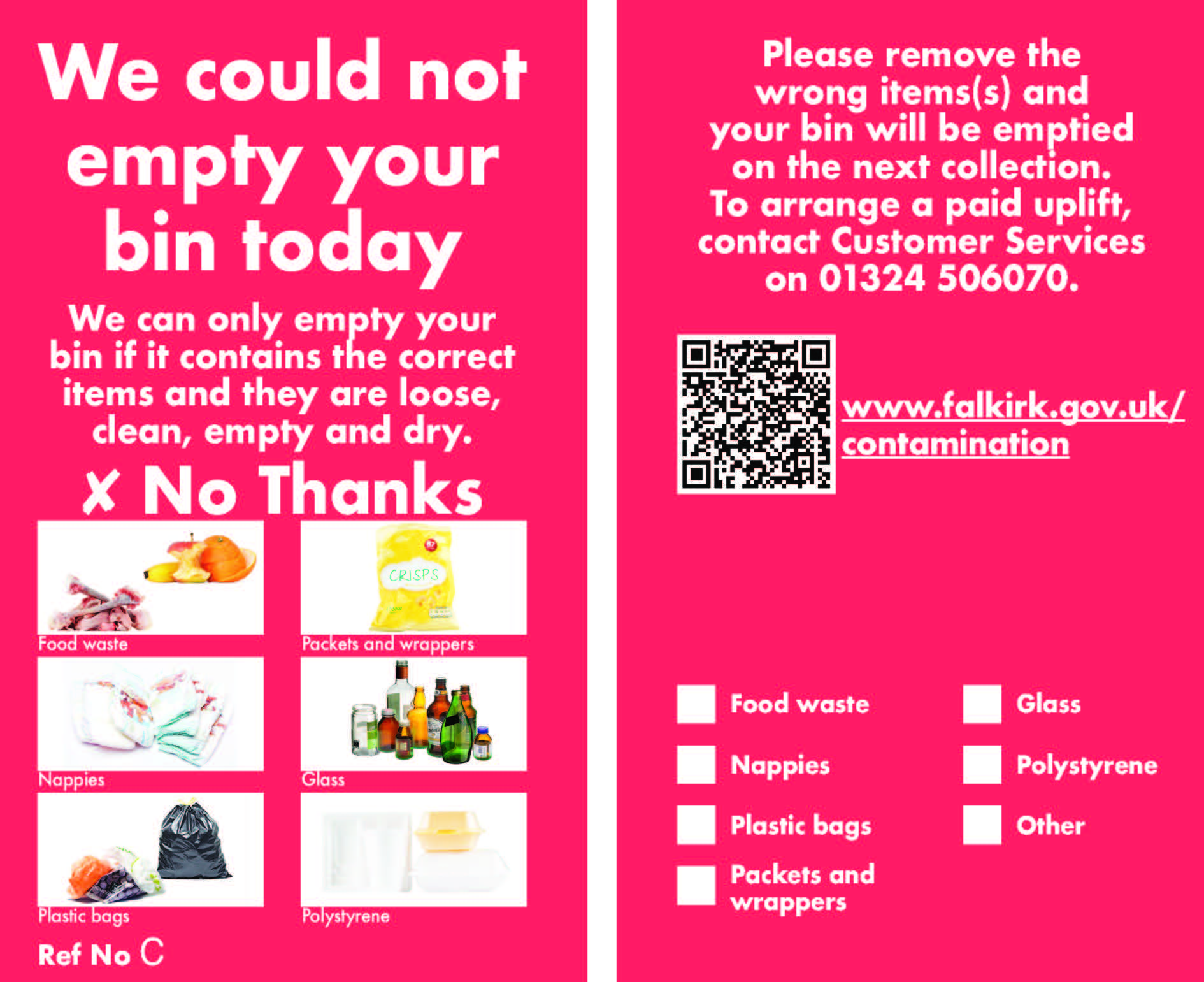Contamination in bins
Amber tags
An amber tag will tell you what material shouldn't be in your bin - a hole will be punched next to the image of the wrong material. The bin WILL be emptied.

Red tags
Should the wrong or dangerous materials (for example hypodermic needles or human excrement) be in your bin or you bin is overweight, a red tag will be placed on your bin and it will NOT be emptied.

We will not empty bins containing the wrong materials
It's important to put the right materials in the right bin. When done correctly, this helps materials get recycled properly.
If the wrong materials are mixed in, it lowers the quality and may cause the materials to be sent for incineration instead of recycling.
Why is contamination a problem?
When a bin is contaminated it not only spoils the work of other residents who have been using the service correctly, it also increases disposal costs for the Council. This leads to lost revenue from recyclable materials, which would otherwise be reinvested into providing Council services.
What can I do to prevent contamination?
To find out what materials should be in your bins, ask our Bin Wizard:
Wishcycling
Wishcycling is when you accidentally put the wrong items in your recycling bin. While we all want to recycle more and do the right thing, sometimes we unknowingly add items that shouldn’t be recycled. This is called wishcycling, and it can lead to your recycling bin being contaminated and not collected.
Ask our Bin Wizard what bin should be used for common wishcycled items.